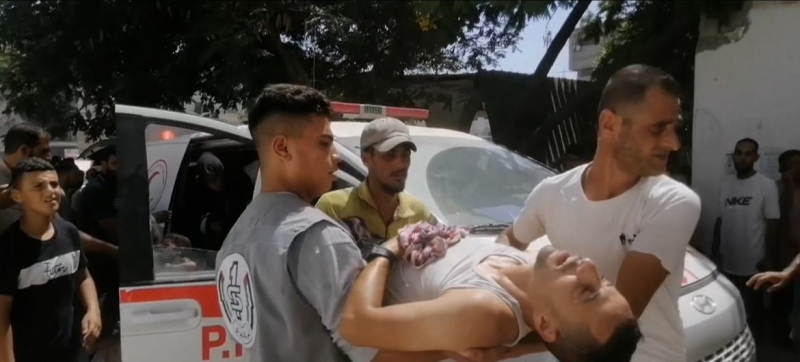
WHO and partners are helping victims of a series of airstrikes in the Al-Mawasi area of Gaza on Saturday, near Khan Younis. Gaza: UN Secretary-General Antonio Guterres mourns victims of deadly strikes on Al-Mawasi Humanitarian aid
The World Health Organization (WHO) and its partners are providing assistance to Gazans affected by deadly Israeli airstrikes on Saturday in the Al-Mawasi area. At least 90 people were killed and about 300 injured, local authorities said.
U.N. Secretary-General Antonio Guterres said through his spokesman late Saturday that he was “shocked and saddened by the loss of life.” Israeli officials said the attack was a “targeted” strike targeting top Hamas military commander Mohammed Deif and his deputy Rafa Salama.
The strike targeted an area near the city of Khan -Younis, on an area that has reportedly been designated by the Israeli military as a safe zone for civilians.
“There are no safe places in Gaza”
U.N. spokesman Stephane Dujarric said the attack reportedly took place in a densely populated area “designated as a humanitarian zone where displaced people are sheltering.”
“This shows that There are no safe places in Gaza,” he stressed. “The Secretary-General condemns the killing of civilians, including women and children.”
The statement said that the UN Secretary-General reiterated his demand for an immediate agreement on a humanitarian ceasefire, and also the release of all hostages.
On his page on the social network, the head of the World Health Organization (WHO), Tedros Adhanom Ghebreyesus, reported that 134 victims were in serious condition were admitted to the nearby Nasser Medical Complex, which was already overcrowded before this incident.
Senior Public Affairs Officer at the United Nations Palestine Refugee Agency (UNRWA), Louise Wateridge published in X chilling video footage from a hospital where workers wipe up pools of blood, washing them off with just water, since they do not have the necessary hygiene products.
She described the children , lying on bloody mattresses, “traumatized by the loss of brothers and sisters.” Some lost limbs, writes Wateridge. Many of these minors, she said, “have experienced life-altering trauma.”
